|
Welcome back Trey! It’s so great to have you back to talk about writing and your new book! As always, a few quick-fire questions: What is your favourite sequel of all time? What is the worst sequel of all time? And which stand-alone book or movie do you think deserves a sequel? Hi Joshua, and thanks for having me back! Whoa, great question, let’s see. This year I read both The Shining, and the sequel that I didn’t even know existed until the movie came out last year, Doctor Sleep. I’ve got to say, and maybe this is because The Shining has been too hyped up in my mind, but Doctor Sleep was better. A fantastic sequel, and a great book. "I’ve got to say, and maybe this is because The Shining has been too hyped up in my mind, but Doctor Sleep was better. A fantastic sequel, and a great book." Worst sequel is difficult though. There’s so many bad ones! Maybe Spiderman 3? I really loved the first movie with Tobey Maguire, and I didn’t mind the second one either. But by the third, I get what people were saying. It’s too weird. I think the Warcraft movie that came a few years ago deserves a sequel. I’m a big fan of the franchise, having played all the games since Warcraft I in the ‘90s, and I’ve read nearly all the books now. When the movie came, a lot of people were very excited, but I don’t think a single person in the world liked it. They just bit off more than they could chew, so I’d love to see them carry on with that and try to make something better. "I think the Warcraft movie that came a few years ago deserves a sequel. I’m a big fan of the franchise, having played all the games since Warcraft I in the ‘90s..." So since we met a few years back I learned a few things about you. One was that you grew up and worked in the same small city (Haugesund, Norway) that my family emigrated from. Tell us one thing most people don’t know about what it’s like to grow up in Norway! Sorry, I’ve got to correct you there, I didn’t grow up in Haugesund, but I have worked there on and off. It’s a beautiful little harbor town, if a little bit past its prime these days. If I was to try and describe it simply, I’d say growing up in Norway is simple. Simple and quiet. There’s not that many people, and we have a lot of space. I moved to the UK in my teens and remember being surprised by how huge the world really is, when you have millions of peoples, culture and society mixed in one place. It was an eye-opener, and I’d recommend it to anyone to move away from their tiny rural homestead for a while. "If I was to try and describe it simply, I’d say growing up in Norway is simple. Simple and quiet. There’s not that many people, and we have a lot of space."
The second book was definitely harder to write, no doubt. I like to think that’s because I tried harder, pushed myself harder and set a higher standard for myself. With the first book, I just sat down to write without giving it too much though, but with the second (and the third which will follow it) things have to make sense. That being said, I had the ideas for both book two and three straight after I wrote the first. They're in a series, though kind of separated from each other, but there’s an overarching story there that I had clearly in my mind as soon as book one was done. I think I wrote book two faster than one, and book three faster than both. You get to know your characters after a while, so it gets easier while still being difficult. "The second book was definitely harder to write, no doubt. I like to think that’s because I tried harder, pushed myself harder and set a higher standard for myself." You recently stated that, “My stories are always character-driven, because that’s where the conflict is, that’s where you can truly find excitement.” What are the ingredients of story-driving conflict and how can authors who can’t seem to get ‘the spark’ going fix it? The recipe for conflict in any story is simple:
"The recipe for conflict in any story is simple: (i) you need a goal, (ii) something that motivates that goal, and (iii) something that stops that goal being reached." The adventures of Agent Greer are high adrenaline narratives. However, just as in movies, it can’t all be explosions and car chases or else there is no narrative. (Ok, ok, yeah, Mad Max, I know…) So how do you keep up the suspense and tension without wearing out the reader? Peaks and valleys. I build up toward the excitement, pull back a little bit, and then turn it up again. I like to think about it like a horror movie: the idea that something might jump out at you is often scarier than the monster itself. I want to keep you at the edge of your seat, then give you some time to relax before we’re back to that edge. You write both horror novellas and novels which fall in the psychological thriller genre. How do you differentiate between horror and thriller? Second, what do you think readers (or writers) get wrong about the difference between the two? If everything goes according to plan, the next book I publish is a horror novella. In my eyes, thrillers are gripping and exciting, pulling you in and making you want to hurry on to the next page. Horror is terrifying and should almost have the opposite effect; you’re not quite sure you want to carry on reading, but you just can’t help yourself. Horror is more subjective however, and difficult to pin down which is probably one of the reasons the differences between the two become mixed. A lot of what Stephen King writes isn’t horror to me at all, yet he’s been the King (pun intended) for 50 years. "...thrillers are gripping and exciting, pulling you in and making you want to hurry on to the next page. Horror is terrifying and should almost have the opposite effect; you’re not quite sure you want to carry on reading, but you just can’t help yourself." Now that your sequel is finished, do you have another project on the go? Any plans for book three? Tempt us with some tantalizing hints if you’re willing to. I have this bad habit of drafting books much faster than I revise and edit them, so I usually always jump on a new thing while my books are with my editor or beta readers. Book 3, the final book in the series is written and being edited, and will hopefully be released faster than Book 2 was. I have a cast of three main characters, with Jordan Greer at the top, and each of my books has one of them in the center of the main conflict. In Book 3, it’s Greer who’s in trouble and that’s all I’ll say. Where can readers get a hold of your new book, A State of Despair? The ebook can already be pre-ordered on Amazon and the paperback will go live on December 1. Links to those can be found all over my social media and website of course, and for readers who just can’t wait, I’m still handing out a few advanced review copies over at TreyStone.com. Get one before they’re gone!
1 Comment
Sweet. I have a devilish sweet tooth, and have since I was a child. I was the kind of kid who reached into the cookie jar when no one was looking. I still do so today, but as an adult, no one can really stop me! There are a great many things that would pose a threat to one as curious as I in H.P. Lovecraft’s mythos. The most likely bane for my existence would be Yog-Sothoth. I feel like my current quest for knowledge would eventually, and undoubtedly, lead me to this Outer God. A being locked outside the universe that knows all that occurs in space-time would likely overload my brain, causing me to bleed from all facial orifices while incoherently sputtering the deepest secrets of all life. That is, until I would shrivel up into a mumbling husk doomed to be cast out into an unfeeling, unthinking void, with nothing but my long sought secrets to keep me company. "The most likely bane for my existence would be Yog-Sothoth. Your original artistic pursuit was in film and TV but you opted to focus your creativity on writing. In what ways has your training in film influenced you as a writer? Do you write screenplays as well or are you committed to the text-only format of books? There are many ways to tell a story. Visually, auditorily, or in written form. Film and TV focus on the visual and audio aspects, but everything always starts from the written format (script). My education in broadcast television allowed me to learn about how to create content for an audience. My writing could be the best work to ever grace this planet, but if no one wants to read it... well, it doesn’t really matter then, does it? I learned how to create a story from people who have been doing so professionally for a long time. Working with professionals like this allowed me to develop an understanding of how to create the kind of story that people want to experience. "There are many ways to tell a story. Visually, auditorily, or in written form. Film and TV focus on the visual and audio aspects, but everything always starts from the written format (script)." I no longer write scripts/screenplays. I used to in college, and shortly following college, but I discovered more freedom in more traditional styles of writing. I found the formatting for scripts and screenplays (interior vs exterior, types of shots, location and character names, etc.) to be a drag. Having to expend effort for such things for stories that I don’t plan to shoot seems like a waste of effort. Effort that would be better spent fleshing out lore and building a literary world. You and I are both Canadian authors which, if you walk through the average Chapters bookstore (pre-quarantine, of course) is fairly rare. What unique challenges has being a Canadian author brought to you? Are there any advantages you’ve found to living north of the US/Canada border?
"Canadians tend to be less inclined to push their way to success, For a similar reason, I feel that Canadians have an advantage on our home turf. Mark, an author I worked with recently, told me of a time he was doing a book signing for his work at a bookstore in Waterloo (his home town). That day, there was a promotion going on for a recently released Stephen King book, but Mr. King was not there to do any reader-interaction stuff. That day, Mark’s new book outsold Stephen King’s. All because he was a local author who came out to see his readers, and King didn’t. No offense to Stephen King, I’ve heard he’s a cool dude, I’m just saying that taking advantage of your home town and local bookstores can be a great boon! Especially when we can all return to our beloved bookstores in the, hopefully, near future. One of the things that many newer writers really struggle to do is to finish things. Perhaps they write three quarters of a story then abandon it or even complete a first draft but never edit it. What advice do you have for writers who find themselves stuck within sight of the finish line? I think I’m kind of a freak in this regard. These days, I always finish every writing project that I start, but that was not always the case. I wrote the first half of Inner Expanses during 2014/2015, but stopped when... life... and death got in the way. There was one week in March of 2015 where I completely lost sight of my life and temporarily devolved into a wretch of a man. After a little while, I regained my humanity, but found that I was not able to pick up where I left off. I felt that if a life can end suddenly and without reason, then so can a book. I purposely left Inner Expanses unfinished as a testament to this notion. It wasn’t until 2018 that I picked up the pen once more, so to speak. "I think I’m kind of a freak in this regard. These days, I always finish every writing project that I start, The reason I reached for that pen once more, and why all writers should do so themselves regarding unfinished work, is quite simple, though hard to see until you have a paradigm shift. Because you can. And because you want to. When I think of potential… when I think of what could be, I cannot rest. Write because you want to, but remember that if your writing is never completed and no one reads it….it’s pointless and useless. This is harsh, but I feel these are words all writers need to hear. No, not hear, FEEL! No one cares about a half-written story. No one is going to write it for you. If you truly care about your story, finish it and share it, otherwise it won’t matter. You can write for yourself, if you want, but why deprive the world of your beautiful words? Your book Inner Expanses is a dimension twisting story about two planes of reality that swirl and collide, one that is full of battles with monsters and another that is familiar to our own world. I am always intrigued when Fantasy and Sci-Fi genre elements are mixed. How did you manage to balance these two threads? Were they blended into one in your mind or woven together?
"When you define the rationale behind concepts, they go from being 'unknown magic' For example; long ago, people thought natural disasters were the work of Gods or monsters, but today we know that they are the result of nature’s natural rhythm. Fictional concepts always come to my mind on their own, but always get swirled into the vortex that is my brain. There, they live with their neighbours of different origin and reason. Much like the beings of the realm of nightly battles, from Inner Expanses. As well as being an author, you are also an artist. In fact, you created the art for your book Inner Expanses which many writers, I’m sure, would love to have the skill to do. Do you often visualize your stories through art as part of your writing process or is your artwork reserved only for covers? Art has always been a huge influence in my life. Particularly visual arts, such as painting, sculpting, and even modern artforms like photography and videography. I use them as lenses to see certain things through. Things that I cannot experience personally, but things that I can appreciate the aesthetic value and meaning of. Horrific concepts not of this realm, long dead romances of tragic heroes, tales of fairies and wizards and dragons. "Art has always been a huge influence in my life. Particularly visual arts, such as painting, I don’t always incorporate art with my stories, but it is relatively common. The acts of creating, both in writing and visual art, are just two mediums in which to tell stories. There are much more, but these are just the two I use the most often...and probably the best, if I’m being honest. Creating the covers/accompanying art for my stories, including the silly little “figures” in my ongoing newsletter story, has given me a valid reason, or rather an excuse, to use a visual medium of storytelling in conjunction with the written. I live on Vancouver Island and absolutely love living by the sea. One of your upcoming works follows the adventures of Captain Charles Salt as he becomes a dreaded pirate. Can you give us any sneak previews or hints as to where his adventures might take him and his feisty crew? Firstly, let me state my envy. I’ve been to Vancouver Island and really enjoyed my time there! I wish I could live in a place like that someday. My dream home would be a lighthouse, I think. Ah, yes. Captain Charles Salt, along with his brothers and sisters, will be the protagonists in my next full length novel ‘Salt On the Waves’. So far, this tale exists solely as concepts and daydreams, albeit somewhat organized ones. I don’t even know if this story will be a single book, two, or even three. There’s certainly a lot of fuel for adventures that the Salt crew could have. I have been playing with ideas for Salt On the Waves for years now, many of which tie into the book that I’m going to be releasing this summer, ‘Unusual Tales for Curious Minds’. This is actually the first time I’m typing out the title, on my website it is still ‘Untitled’! I may change that soon, though.
Picture a world, similar to ours in cosmic geography and geology, but there are no great land masses. Just many islands. Some big, some small, but all very interesting and unique. Due to ancient and secret reasons, there is a great degree of variation between islands. The amount of different kinds of life in this world, known as Okeanós, is staggering. This includes, but is not restricted to, colossal sea monsters the size of islands, vicious pirates hungry for gold and blood, and many curiosities of prehistoric and sinister nature. "This includes, but is not restricted to, colossal sea monsters the size of islands, vicious pirates hungry for gold and blood, and many curiosities of prehistoric and sinister nature." Where can readers keep track of your latest writing and stay up to date on your next publication? My newsletter and my website are the best places to do that. I have added a ‘Latest Updates’ board on the homepage of my website to let everyone, myself included, know of recent changes and developments. I also mention the same things on the board in my newsletter, in addition to giving my subscribers short stories, art, and poems. All of which are EXCLUSIVE to the newsletter. Twitter is also a great place to keep track of my work and get in touch with me. I’ve made plenty of friends in the writing community there. I tweet daily and am always looking to connect with new readers and writers! Make sure to follow Reyadh on Twitter and join his newsletter. Book lovers can also find him on Goodreads!
Any great villain is relatable. The ones you feel for and almost root for because you can empathize with what they went through. When I see villains who are just dicks and "born this way", I can't get into you. Show me a Venom or a Punisher bad guy and I'm all in. Someone who has lost everything and I'm behind them 100%. John Kramer killed for a reason, and even then, had people kill themselves. John Doe from Seven. "Any great villain is relatable. The ones you feel for and almost root for Online presence is a big deal, especially for newer writers who are trying to build an audience. As your website is exceptionally professional, do you have any advice for newer writers who are weighing their options for an author website? Definitely. Use Leia. It's an app that will build the website for you, based off your preferences. It takes zero skill to learn. The team has been super professional in assisting me where I need. There is a free version I recommend starting off with. From there, you can go pro with the click of a button. My site averages 1,000 hits a month (or more) and I didn't have to learn anything. Though I am not a regular reader of horror, some of my closest author friends write in this genre. What drew you into the genre and what would you say to a potential reader who is hesitant about exploring horror-themed works? As a teen I gravitated from fantasy to horror through an author named John Saul. Saul's books were more "Teens discover secret society" and "people with dark powers". I burned through them in a day. Despite his huge library of work, I needed more. I moved on to Dean Koontz and Stephen King. Horror isn't always about gore in books. If the synopsis sounds good, look at reviews. They should give some insight if you're avoiding the genre due to graphic violence. "Saul's books were more "Teens discover secret society" and "people with dark powers". I burned through them in a day."
Strange Tales from the City of Dust, your serial sci-fi series, is a set of stories about a futuristic version of Pittsburgh which has now become the City of Dust. What inspired this dystopian cyberpunk world and what types of themes do you enjoy exploring through your stories? The main things I was shooting for here was having a Bladerunner universe with a Sin City-type of spit storylines. As any writer knows, we get so many ideas that it's hard to keep up with all of our works-in-progress. Doing things as serial stories means any time I think of something new, I can find an episode to incorporate it. No waiting. No getting stressed at too many back burner unfinished stories. "Doing things as serial stories means any time I think of something new, I can find an episode to incorporate it.
You have decided to create a set of serial novellas which all take place in the world of Strange Tales from the City of Dust instead of writing novel-length books. Was that an intentional choice or did the stories themselves inform that choice? What have been some of the advantages and/or challenges of marketing serial novellas as opposed to more traditional full-length novels? I've written a ton of normal books of varying lengths. I get so distracted. New ideas, so I abandon works in progress. Not anymore. Every new idea is blended into stories I'm working on. It might be an infection I was studying. It might be an event that takes place. It'll all be within the City of Dust. "I get so distracted. New ideas, so I abandon works in progress. As I read through the descriptions for Clockwork Deus, The Darkest Part, and Pinned Butterflies, I could not help but think of my favorite Netflix series: Black Mirror. Do you think that your novellas could play out well on screen? Also, what are your thoughts on Black Mirror as a series in terms of its contributions to the public conversation about modern Sci-Fi? I love Black Mirror. Been eating it up as soon as it launched and trying to find everything I can that released soon after and attempted to ride the waves it casted behind it. I always write things in a visual format so that it can be easily transferred to screen. I usually have specific actors/actresses in mind when designing characters. I look at the episodes like a comic book purchase. People enjoy comics for a fun, quick read. My episodes are always a buck each and have a 1-2 hour enjoyable read. Each episode delves into something real-world, while also forcibly taking something currently that I don't care for and making it fixed and adamant. My books won't ever make sexual preference or sexual identity an issue. This isn't to skirt the issue. It's because, as I see it, it's all considered normal in my universe. No one will give you a side-eye if you were born a girl but identify as a guy. No one cares what's between your legs. "Each episode delves into something real-world, while also forcibly taking something currently
Last, but not least, where can readers track down your books and stay up to date on your latest publications? Amazon. For the moment, I am exclusively Kindle Unlimited. Strange Tales From The City Of Dust Episode 4: Neon Pentagrams is being worked on now! Find more from Vaz on his website!
Interesting first question for me, because I actually sort of hate sandwiches. Writing beverages!! I could partake in any type of writing beverage and instantly be put in the typing mood. Coffee, hot chocolate, frappuccino, smoothie, apple cider, they are all on the same level of preference. This is a tough quick-fire question! It’s hard for me to call any one character absolutely despicable, because there’s always something under that layer of not-niceness. I find villains are typically the most complex characters in a cast. There are so many layers to their backstory that made them into the monster they are. If you take a moment to step in their shoes, see the world through their lens, you may understand how they justify their actions. It doesn’t excuse them, but it does create sympathy, and how can you despise someone you pity? But if I had to choose one, I would pick Maven from the Red Queen series. I don’t want to be 'spoilery', but he did some really messed up things to people he had claimed to love and it made me really upset. I will say though, he has that complex backstory that makes you sympathize with him and some readers actually like him and ship him with the main character - he did not win me over that much. I find villains are typically the most complex characters in a cast. There are so many layers to their backstory that made them into the monster they are. What does a productive day of writing look like for you? Are you at home or out in public? Do you typically write thousands of words at a time or just a few hundred each session? Do you write on a schedule or are you flexible? My writing schedule is controlled chaos. Working a full-time job and managing other adult life things makes it hard to designate specific time to writing. What I do is more of a general weekly writing goal of 5,000 words a week. I write during my lunch break, waiting for my oil change at the repair shop, waiting in a long line at the bank, when I have a free evening at home - you get the idea. Sometimes I don’t make that goal because life happens, but I don’t beat myself up for it, I just partition the extra words between the following two weeks to make it up. Right now I’m not following that schedule though as I’m focusing on short stories, so my writing time/amount of words on the page is even more sporadic than it was when I was writing Creatures Most Vile.
Little did I know I would soon fall in love with writing. One thing I have been my whole life is a lover of books, I don’t know why it didn’t occur to me until I was 21 that I might actually love writing books, too. So now that I’ve caught the bug, I find I have lots of stories to tell. Stories about girls who find themselves misunderstood and ridiculed by society, girls who fight for their right to live their lives the way they choose, free of retribution. You are in the process of querying agents and publishers. How have you found that process and do you have any tips for writers who may be getting close to finishing their current manuscript? Querying is one of the most difficult things I’ve done to myself. I am willingly putting a piece of myself out into the world for strangers to judge and, in my case, reject. That is one of the hardest things to cope with during the querying process- people constantly rejecting something you love with all your heart and poured endless amounts of work into. So my biggest tip for writers about to start querying is prepare your heart. Be ready for rejection and have some coping strategies to get through it. Most importantly, always keep in mind that rejection is NOT a measure of your talent or self. You’re work is amazing and you are amazing for putting yourself out there and taking this big step towards sharing your creation with the world. Don’t let the rejections define you or discourage you, no matter how many stack up. My coping strategy is to turn that rejection into fuel to move forward. I have a rejection goals checklist, for every rejection I put a sticker on the board. My current goal is to reach 30 rejections by the end of the year. Those stickers show that I’m not giving up on my dream by turning my rejections into milestones, rather than failures. Don’t let the rejections define you or discourage you, no matter how many stack up. Your first novel, Creatures Most Vile, is a YA fantasy rife with terrifying monsters that stalk a young woman named Anora who is navigating the difficulties of trauma and struggling to support her family. Where did you find inspiration for this harrowing tale?
The initial inspiration came from a dream... When I woke up, I wrote the dream down and used that as my base for the story. The suspenseful scary setting and monster inspirations come from my lifelong interest in all things horror. I'm a big fan of monster movies especially, because I love seeing imaginative takes on biology. Writing my creatures was my favorite part because I got to be the creator and brought my own imagined organisms to life on the page. Writing my creatures was my favorite part because I got to be the creator and brought my own imagined organisms to life on the page. Issues surrounding mental health have been given increasing attention in recent public discourse. Through Anora’s story are you trying to address any particular mental health concern or spark a conversation on a particular issue related to that topic? Yes! The main theme and conversation I want to address is the downplay of mental health in society. Anora suffers from PTSD and anxiety from growing up in a world constantly under threat of attack from voracious monsters. She has witnessed countless massacres, including her father’s death, and has nearly met her own grisly demise more times than she cares to count. When her storm-wielding powers are discovered and she’s expected to fight these beasts, her mental health is completely disregarded by society. They write it off as a simple fear she’ll get over with time and throw her right into the thick of training without a second thought. When her storm-wielding powers are discovered and she’s expected to fight these beasts, her mental health is completely disregarded by society. This is a problem that many people with any form of mental illness face. I suffer from anxiety and had situational depression in the past. I’ve heard comments like “You’re overreacting/ being dramatic”, “Just calm down”, or “Get over it” more times than I should. Downplaying and disregarding any form of mental illness needs to stop. Mental health is just as important as any other health measure, and should be a priority concern with how people treat others, regardless of the kind of monster that person is facing. Mental health is just as important as any other health measure, and should be a priority concern with how people treat others, regardless of the kind of monster that person is facing. In speaking with other fantasy writers I find that one of the most common difficulties in building a fantastic world is handling and defining the role and use of magic. How does magic work within Anora’s world and how did you define its boundaries and limitations? Magic is very rare in Anora’s world. The only manifestation of magic is through rare, supernatural abilities. I’ve drawn a lot from my biology background to define the terms of this magic. It is something you’re born with, a specific gene mutation occurring in a small portion of the population that allows the person to manipulate specific aspects of the environment. In Anora’s case, she can manipulate specific elements: water and air. She can manipulate them individually or in tandem to create weather. Others are born with a manipulation of earth or energy, while others can manipulate more organic materials like muscles, nerves, and brain matter (IE mind control). With the biological element to how these powers work, there is a finite well to their power that limits them from being super crazy powerful beings. The explanation behind how it works is super science-y and I won’t describe here (I don’t go into full detail in the book either, it’s mainly to satisfy my nerdiness). There are no magical objects, but there is some imaginative tech developed to help people survive in this creature ridden world. I’ve drawn a lot from my biology background to define the terms of this magic. It is something you’re born with, a specific gene mutation occurring in a small portion of the population... Where can readers keep track of Creatures Most Vile on its march towards publication and where stay fans stay up to date on your most current projects? Creatures Most Vile and I have a long journey ahead of us and I post updates on Facebook, Twitter, and my website. Thank you for your support and hope one day you’ll find Creatures Most Vile sitting on your shelf!
"I can’t stomach olives, that’s the one food I cannot grit my teeth and power through, What does a typical day of writing look like for you? Do you have any rituals or habits that help to keep you focussed or make your session more productive? It really depends a lot on the project(s) I’m working on, but more often than not I find my writing to be sporadic. While I do push myself to work every day, the amount of work I get done varies depending on my mood, if I’m rested, or headspace. I am careful not to end up in situations where I am forcing myself to write or feeling pressured to because I believe all of that greatly hinders my creativity. When I do sit down to write though, I will usually listen to some music to get me in the right headspace, never any songs with lyrics or singing, usually background music from video games or orchestral pieces. What first drew you to writing and what keeps you writing after years of going at it? Do you have specific goals in mind, like publication, or do you write for other reasons? My first introduction to writing was a high school teacher I had. He really encouraged me to try creative writing and was a supporter in my beginning days. Since graduating, the thing that inspires me is other people’s work, funnily enough, I think especially the work I dislike. When I read, see, or even play a piece of work that doesn’t make me feel anything, my head fills with ways I would have written it differently. I’ve never been the kind of person to have long term goals in mind, and the same rings true for writing. Whether it be a novel, poetry, or a quick short story, my primary concern is to create things I like and am ultimately proud of, but that being said, publishing is also a major goal with Injectable Ashes specifically. "When I read, see, or even play a piece of work that doesn’t make me feel anything,
You have lived with mobility challenges for most of your life. Do you feel like this influences your writing in the perspectives of your characters or do you not view this as an influencing factor? I have lived with a nervous system disability for most of my life, so it’s hard to say it doesn’t dictate at least some of my writing. I can say there are absolutely elements that have been addressing my disability metaphorically; in fact, you might be able to break down the entire storyline into one giant allegory. And as much as I preach about separating the author from their characters, eventually, details are naturally going to overlap. "I can say there are absolutely elements that have been addressing my disability metaphorically; What was it like to write the sequel to Injectable Ashes? Was it easier or harder? Did anything you thought was going to happen shift dramatically or did it play out as you planned? It was considerably more stressful working on the sequel. Every creative decision I made required weeks of deliberation and planning. I became a perfectionist because of how much I love Injectable Ashes, not wanting to only match the quality I expect from myself, but to outdo myself. That was something that really weighed me down and made things considerably more difficult to conceptualize. But as for when it came time to put pen to paper and actually write, I was able to find my rhythm quite quickly and pick up right where I left off. Initially, I thought I had a pretty firm idea in how the story would turn out in the sequel, but what I ended up with was something entirely different, and a lot of those difference were changes I didn’t think of until I got to writing those parts. "I became a perfectionist because of how much I love Injectable Ashes, What is your next big project? Will you write a third book in the series or do you have something else planned? I’m taking a break for a while from the novel, but I already have ideas cooking in the back of my mind for a third installment, so that will likely be the next major project I’ll be looking to conquer, until then though I’ll continue writing, working on music, poetry, short stories, or whatever else catches my interest. To keep up with Brendan and his upcoming projects follow him on Twitter.
To become a novelist has been a dream of mine since I was in single digits. I couldn’t tell you exactly why, but I have always romanticized the idea of being able to walk out on my porch with my laptop to write while I smell the ocean breeze. I do think my numerous experiences help to enrich my character development. "I do think my numerous experiences help to enrich my character development" How do you manage your writing schedule and where do you write? Are you highly structured or are you more flexible with when and where you fit your writing time in? Do you write at home or some other place? I almost always write at home, and if I am writing draft one of a novel, I must be at my desk with a quiet environment or with my sound canceling headphones on. The time of day isn’t as important, only that I am uninterrupted in this process. I tend to get very into the scene and very into the mood of the character, so even answering a quick question, like, “Mom, where is the extra tissue?” can take me half an hour to recover from. Now, I am a lot less rigid with short stories. I can set up in a coffee shop or anywhere around the house and dump those out. Horror as a genre can be quite polarizing but has always drawn a steady readership. What do you think draws people to Horror fiction and what important things can Horror fiction offer readers who don’t usually read the genre? I think people are drawn to Horror for different reasons: the adrenaline, for the relief after the scare, for the tropes or monsters themselves. I have always liked to challenge myself, and my first scary movie terrified me, so it became a challenge from that point forward for me to be able to watch scary movies without covering my eyes. For those who don’t typically read the genre, I think many would be surprised to find out how much real life resides amongst the terror; I think, too, that many would be surprised at their ability to stare the monster in the face. "For those who don’t typically read the genre, I think many would be surprised
"I often come up with an idea after I have heard a certain song One of my favorite things about my primary source of inspiration, the Norse Myths, is the monsters: trolls, giants, dragons, sea serpents, wights, etc. What is your all-time favorite monster and why? My favorite monster? That’s hard, it’s a battle between dragons and werewolves, but I feel like I would have to say dragons. I watched Dragon Heart with my father when I was very young, and I have loved them since. Smaug in The Hobbit was just gorgeous, and when Hagrid had his baby dragon, I really wanted my own. Why? Because they are just the coolest! I want to be a dragon so I can live a long time and sleep on a pile of gold. One of the things that so many new authors get wrong is writing scary scenes; often they are more farcical than fearsome. Do you have advice for writers from any genre that want to add suspense through scary scenes in their novel? It’s hard to remember, in writing, that a scene should not be approached like it would in a movie, that you aren’t just going for a jump scare, and that the reader can’t “see” the dim light or the thunderstorm going outside, so you have to make them feel it. Get into the reader’s mind, make sure they sense the tension building allllllll the way until you reach that climatic moment where the jump actually happens so that their nerves are already on end and their stomach in knots. That’s when you release the big bad scare and really hit them hard. "the reader can’t “see” the dim light or the thunderstorm going outside, so you have to make them feel it" You currently have two titles available on Amazon: Brenna’s Wing and Blood Drops. Do you have any advice for writers considering self-publication through Amazon? Phew. That’s an open-ended question that could be discussed for hours. It isn’t easy. There are a lot of i’s that have to be dotted and t’s that have to be crossed. Pay attention to detail; have several beta readers read your work; design your cover, let it sit, work on it more, get feedback, then work on it more; comb your manuscript over and over for spelling and punctuation; figure out a formatting method that works for you (With Brenna’s Wing, I used Microsoft Word only and that was a headache and a half. With Blood Drops, I used Scrivener, which made it a lot easier [after I figured out how to use it].); don’t formally announce your book until you have the pre-order available - the internet moves fast and so do attention spans - you want people to be able to buy it right then and there when you make your big announcement; but do offer a pre-order option, if you can get a good handful of pre-orders before your book drops, it helps start you higher in the rankings. That’s all I have for now. Anyone with any specific guidance questions are welcomed to reach out to me. "if you can get a good handful of pre-orders before your book drops, Find Blood Drops, W.B. Welch's chilling collection of short horror stories, on Amazon.
|
AuthorJoshua Gillingham is an author, editor, and game designer from Vancouver Island, Canada. Archives
April 2022
Categories
All
|

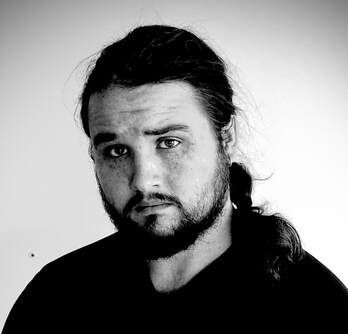

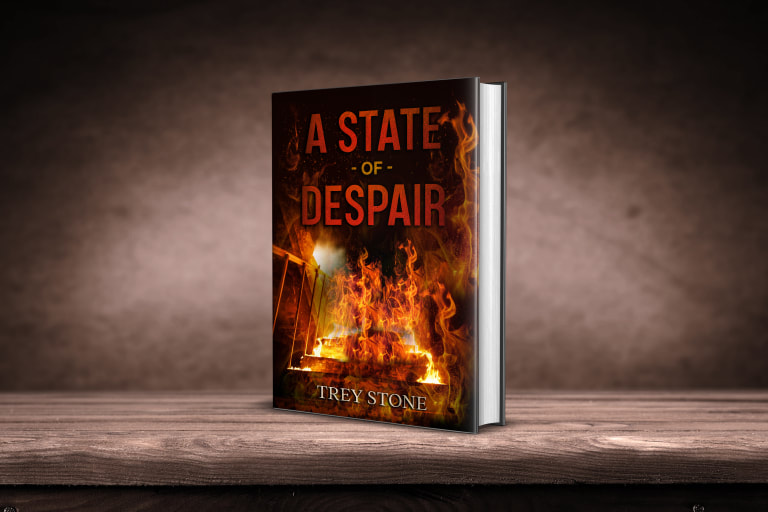
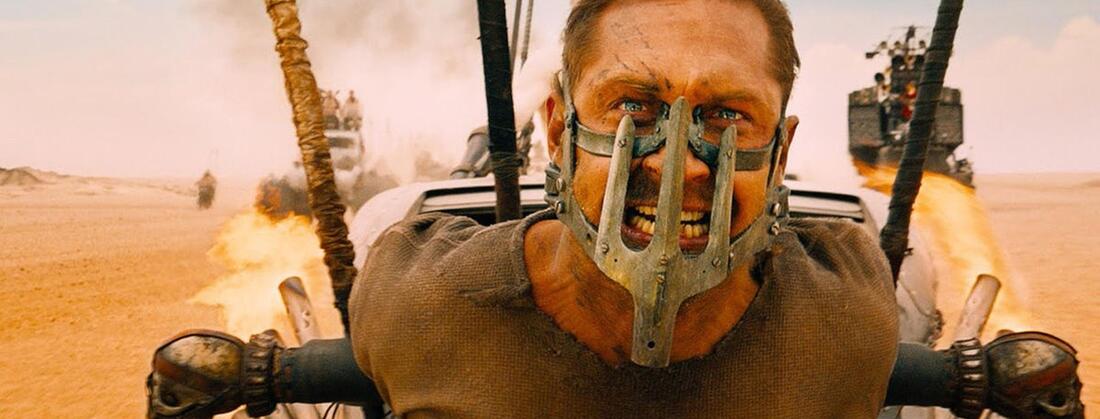
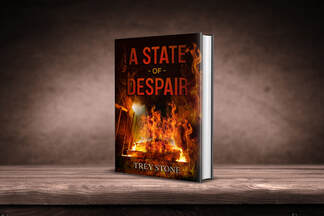
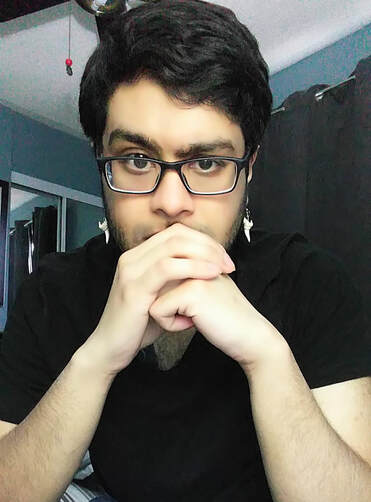

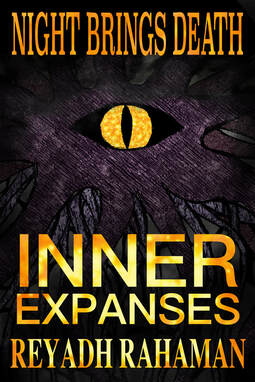
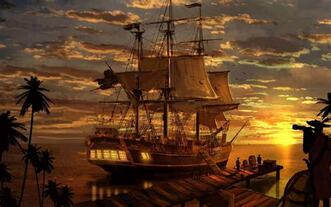
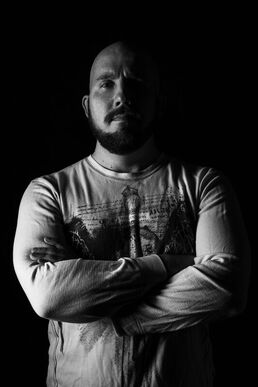
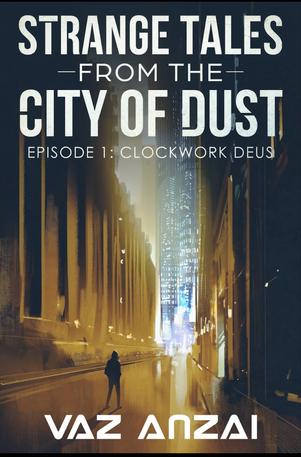
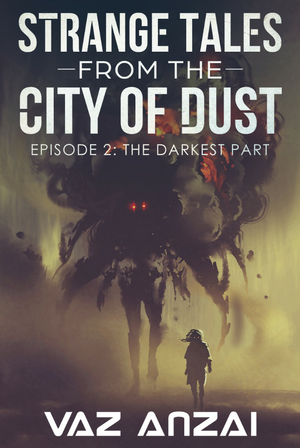
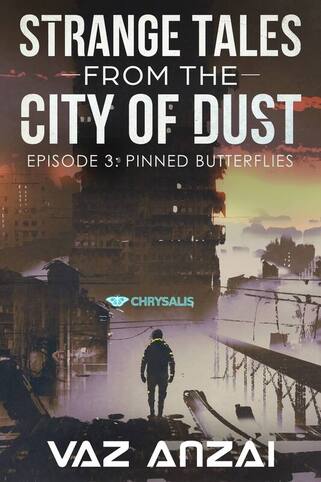
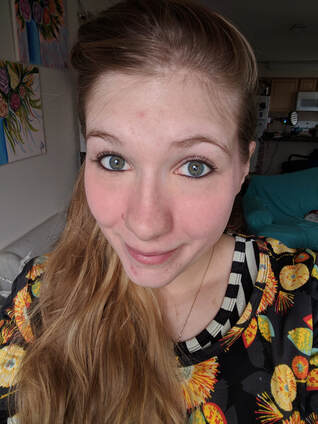
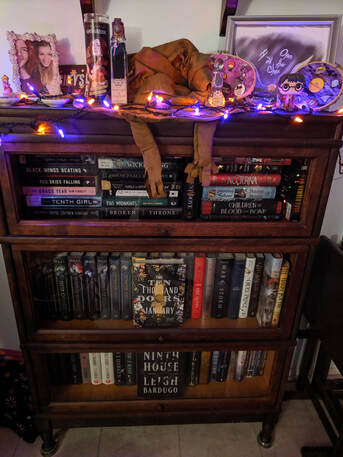
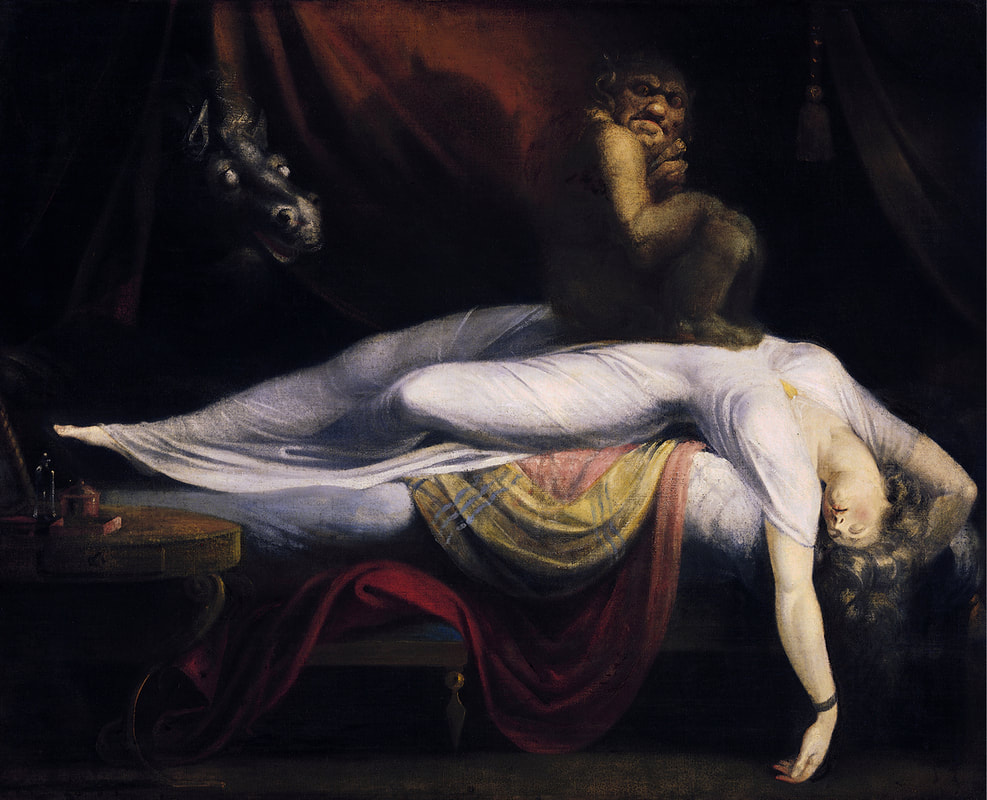
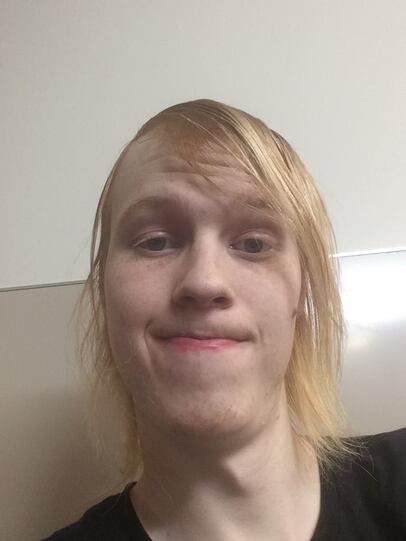
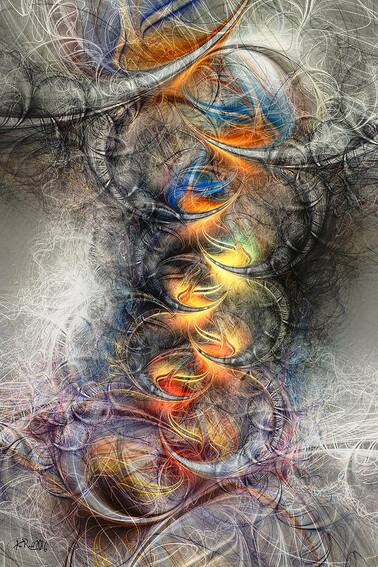
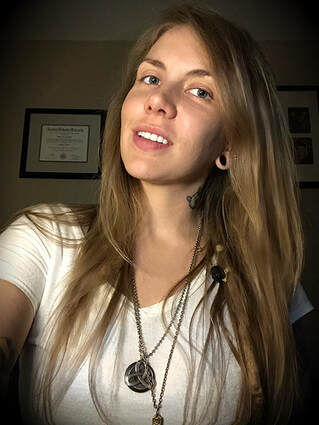
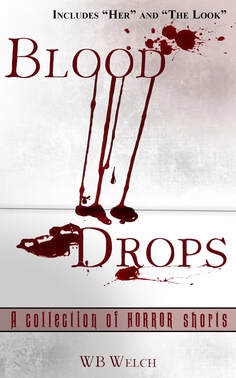
 RSS Feed
RSS Feed
